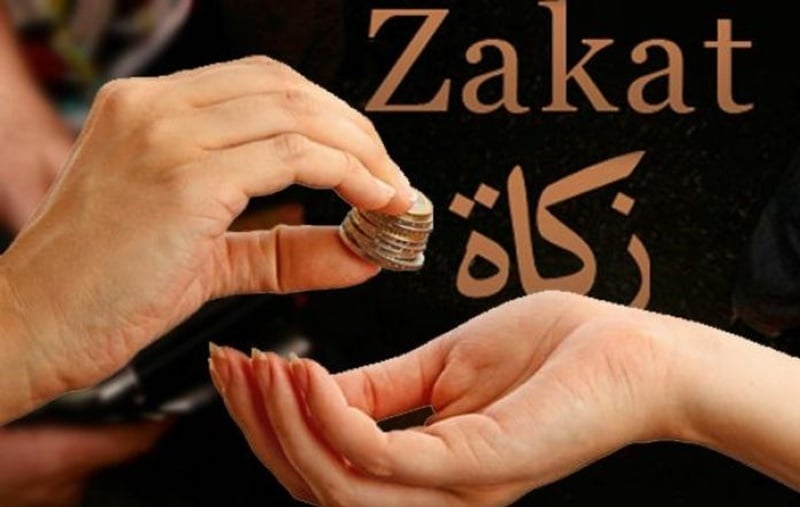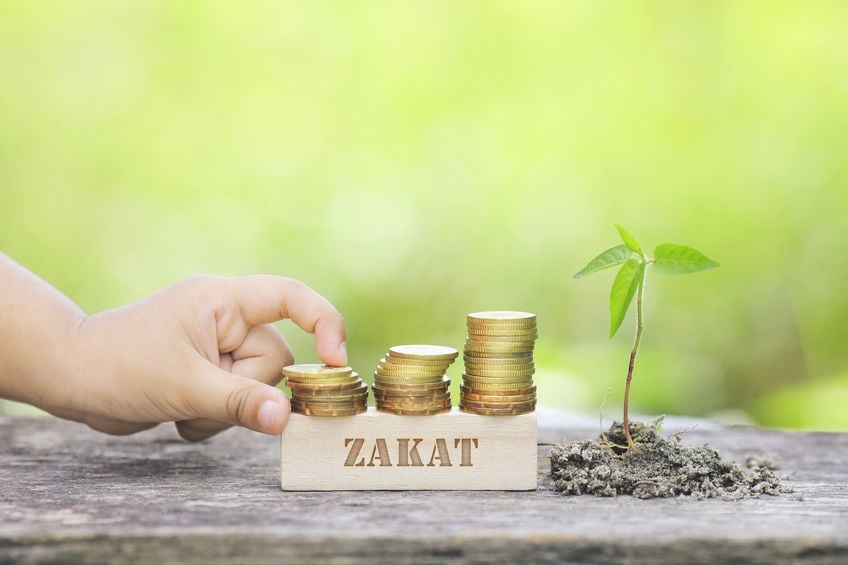RinggitPlus
21st May 2019 - 5 min read
What Is Zakat?
Zakat is an obligation in Islam to make contributions towards the less fortunate. It is one of the five pillars of Islam and is intended to redistribute wealth between the rich and the poor as well as cleanse the wealth of those who pay zakat. There are two types of zakat you should know about: zakat fitrah and zakat harta.
Zakat Fitrah
Zakat fitrah is a small levy that must be paid by all Muslims every year without fail, regardless of age, gender, or wealth. Usually, Muslims settle their zakat fitrah during the holy month of Ramadan as they are obligated to pay it before the start of Eid prayers. The rate for zakat fitrah is equivalent to the value of a bushel of rice weighing 2.7kg. This rate is a remnant from the time when people used to pay their zakat fitrah with actual bags of rice; now Muslims simply pay the equivalent value of the amount.
So, how much is that really in actual Ringgit? Each state declares the zakat rate for the year based on the current price of its local rice, and the amount of zakat fitrah per person usually remains below RM10. However, those who are capable can choose to pay zakat fitrah according to the price of the rice brand they consume in their household, which may be more expensive.
Zakat Harta
You are required to pay zakat harta once a year if you meet the minimum requirements to do so. There are several types or categories of zakat harta, namely:
- Zakat on earnings
- Zakat on business
- Zakat on savings
- Zakat on gold and silver
- Zakat on EPF
- Zakat on farming
- Zakat on livestock
The most relevant type of zakat harta for most Malaysians would be the zakat on earnings. Muslims who have been employed for more than a year and awarded an income that is above the set minimum amount are obliged to perform their zakat on earnings. The minimum amount, called nisab, is the equivalent of 85g of gold and differs from state to state on a periodical basis. For example, the nisab for zakat harta in the state of Selangor for the period of July to December 2018 was set at RM14,162.
Generally, Muslims who meet the nisab’s requirements are mandated to contribute 2.5% of their income as zakat. Their income includes all types of wages, remuneration, payments, or proceeds obtained from their work such as salaries, bonuses, commissions, royalties, freelance payments, and rental income.
How To Pay For Zakat

Muslims in Malaysia are encouraged to make their zakat payments to the government’s zakat collection centres for proper distribution to the needy. One way you can pay for your zakat is through a monthly salary deduction scheme. In order to avoid a clash with the monthly tax deduction (potongan cukai bulanan) for income tax, employers can make adjustments so that the monthly zakat deduction is taken from the monthly tax deduction.
Here are the other methods through which you can pay for zakat:
- Online through each state’s official zakat board website
- Internet banking
- MYEG
- In-person at an official zakat board branch
- Over-the-counter at the post office
- Selected bank counters or ATMs
- Official agents.
If in doubt, make sure to check your respective state’s official zakat website for legitimate methods of payment.
Zakat Reliefs And Rebates
Just like you have tax reliefs and rebates when paying income tax, the zakat system also has its own reliefs that allow the payer to make deductions from the amount they have to pay. Referred to as the had kifayah (minimum needs for an individual or family), it again varies from state to state as it is determined by each state’s Islamic religious council.
The type of expenses that can be deducted from your zakat calculations include self, wives, children, parents, EPF deduction, education, and so on.
Zakat As Income Tax Rebate In Malaysia

One perk of making zakat payments is that it acts as a rebate for your annual income taxes. A tax rebate is a reduction in the actual amount of income tax you have to pay – unlike tax reliefs, which merely reduce your chargeable income amount. Furthermore, the cap on the amount of tax rebate you can claim for zakat is subject to the maximum of tax charged.
All this means that zakat payment can help reduce the amount of income tax you pay tremendously. In fact, this rebate can sometimes be enough to reduce your amount of income tax to RM0. Here’s an example. Let’s say after all your tax reliefs and tax deductions, your tax amount comes up to RM450, and the amount of zakat you have paid in the same assessment year is RM500. Since you are allowed to deduct the amount of tax rebate for zakat subject to the maximum of tax charged, your required amount to pay will be reduced to RM0.
********
During the holy month of Ramadan, it’s good to remember that zakat isn’t meant to be about rules and calculations, but about being grateful for what you have and fulfilling your obligations towards those who are in need. To find out more about zakat, enquire with respective religious authorities of the state where you are employed.






Comments (18)
Pls include – how business zakat will be deducted from company’s income tax. Tq
Business zakat can be deducted from the company’s income tax, reducing chargeable income. Make sure to follow IRB guidelines, and it’s best to consult with a tax professional for full compliance.
Thanks for the informative article.
No doubt that Paying Zakat to designated offices gives tax savings. My question is, how to get rebate for the zakat that one is paying directly to his relatives who deserve help.
To claim a rebate for Zakat paid directly to relatives, ensure payments are made through recognized charitable organizations for potential tax benefits.
Would be interesting if government allow equivalent for non muslim to get tax rebate for payments to church and temples
What if the zakat is paid by non muslim, still eligible for tax rebate?
Base on ACP 1967 Section 6A. (3): “A rebate shall be granted for a year of assessment for any zakat, fitrah or any other Islamic religious dues payment of which is obligatory and which are paid in the basis year for that year of assessment to, and evidenced by a receipt issued by, an appropriate religious authority established under any written law.”
It does not say anything about the religion of the payer. However I think it was never been tested or used (regarding of this) before. You may try 🙂
There’s a debate where rich Muslims never pay income tax, only Zakat. The issue is how can it benefit the country when Zakat cannot be used outside of religious purposes or country’s development. This is a serious issue
you need to understand how buying power works.
You do realizes that zakat is just a rebate for tax right? Zakat is also only 2.5%. So no, the rich can’t avoid paying taxes because in Malaysia taxes is more than Zakat so yeah don’t have to worry there. Second, zakat actually not for religious purposes, in fact Islam don’t even allow it to be used like that, plus unlike other religion Islam as a religion don’t actually use that much money in their prayer, they don’t burn incense, they don’t have religious ceremony that needed a lot of money from the people. No priest, no monks, no guru… Read more »
The 2.5% is the minimum rate to pay Zakat but not limited to. For individuals, I know Muslim individuals pay equal or slightly more than their tax payable amount and claim deduction which leaves them not paying the tax. The zakat is only usable for the Muslim population, but not the kafirs.
So in the perspective of nation building, the record shows non- Muslims are far more contributing than Muslims.
The help that u claim from the Zakat fund is only extended to Muslim brothers, not all…
John,
I believe your question was answered. Do let us know if you tried zakat to save on taxes. Cheers!
If the intention paying zakah is to avoid paying income tax is unacceptable. We do it bcoz it’s Allah’s command.
Zakat is only obligatory to Muslims, and so I don’t think non-Muslim eligible for tax rebates even they contribute to zakat institutions.
Goes with saying muslims only. No muslims can donate to any charitable org where the organization will states donation is tax deductible.
For muslims only. It is 1 of the 5 pillars of Islam
Zakah payable are for muslims only. Zakah collection is given to 8 hasnafs or category.
Who are the 8 recipients of Zakat?
Allah tells us in the Quran:
The poor.
The needy.
Collectors of zakat.
Softening the hearts.
Slaves.
Those in debt.
In the path of Allah.
The stranded traveller.